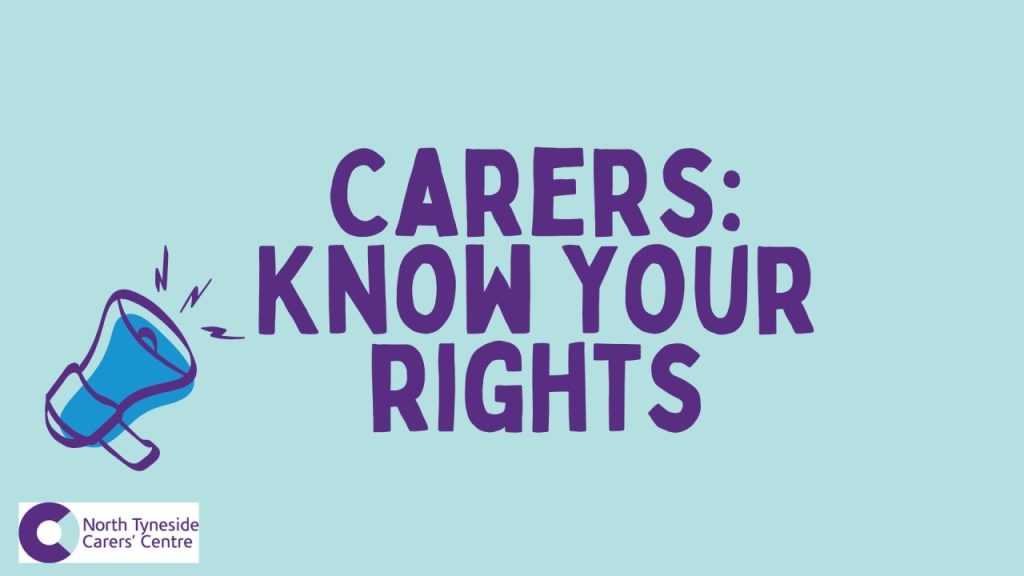Know your rights

Every day people all across North Tyneside quietly step up to care for someone they love. That could be a parent, partner, friend or neighbour who couldn’t manage without their support.
At North Tyneside Carers’ Centre, we know how much unpaid carers contribute and we also know how tough it can be. This month on 20 November it’s Carers Rights Day – an annual moment to make all carers aware of their rights and empower them to uphold them.
Whether you’ve been caring for years or are just starting to navigate this role, knowing what you’re entitled to can make life that little bit easier.
Here’s what every carer in North Tyneside should know.
1. You have the right to a Carer’s Assessment
If you provide unpaid care, you are entitled to a Carer’s Assessment from your local council, no matter your age or income. This assessment looks at how caring affects your life and wellbeing, and what support could make things easier. That might mean help with practical tasks, respite breaks, access to training, or emotional support.
You can ask your local carers’ centre (like ours!) to help you arrange and prepare for your assessment. At North Tyneside Carers’ Centre we can do statutory assessments on behalf of North Tyneside Council.
2. You have the right to take time off work for caring
If you’re juggling employment with caring, you have legal rights at work. In 2024, all employees in the UK gained the right to up to five days of unpaid Carer’s Leave each year, which can be taken flexibly to manage caring responsibilities.
You also have the right to request flexible working, and your employer should consider how to support your work-life balance.
It’s always worth talking to your manager or HR team about what’s available and remember, being open about your role as a carer can help create a more understanding workplace.
3. You have the right to be involved in decisions
As a carer, your insight matters. You should be consulted and involved in decisions about the care and treatment of the person you support, especially in health and social care planning. If the person you care for is being discharged from hospital, the hospital must identify and consult with you, where possible.
If you ever feel excluded, speak up. You have the right to have your experience and voice recognised.
Carers UK have produced a helpful factsheet for carers which provides information about what to expect when someone comes out of hospital.
4. You have the right to support for your wellbeing
As a carer, it’s important to look after your health and wellbeing and one way is to exercise your right to request a free flu jab, if you’d like to. If you are the main carer for an older or disabled person who may be put at risk if you become ill, or if you are in receipt of Carer’s Allowance, you should be offered a free flu jab. Speak to your GP or local pharmacist
5. You have the right to be recognised as a carer
If you provide unpaid care, you can ask your GP practice to identify you as a carer on your patient record. The benefit of this is that you may then fall into a priority group for vaccines or other public health campaigns.
6. You have the right to be protected against harassment or discrimination
Some people may experience discrimination in the workplace, in education, housing, buying goods or services or accessing public services.
Carers have the right to be protected against harassment and discrimination, primarily through the Equality Act 2010, which prohibits direct discrimination and harassment because of an association with a person with a protected characteristic (like disability or age). You may also be protected under other laws, including disability or sex discrimination legislation. Understanding your rights can be useful if you feel you have been treated unfairly because of your caring role.
If you’re caring for someone and unsure of your rights, our team at North Tyneside Carers’ Centre is here to help. We can offer information, advice, and practical support to make sure you get the help you’re entitled to.
